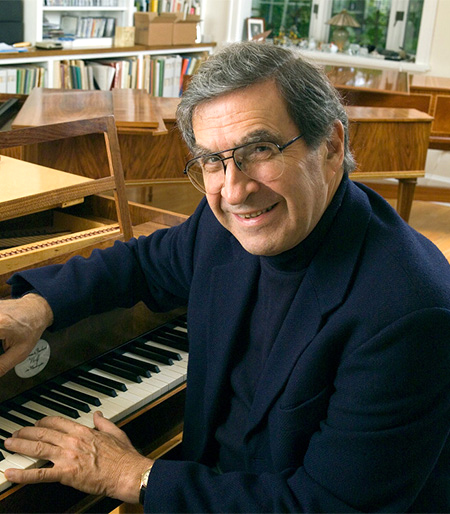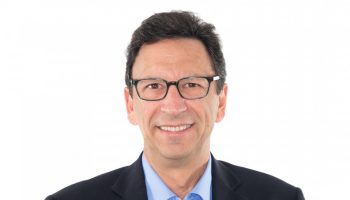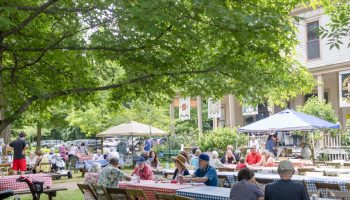Pianist Malcolm Bilson has been to Chautauqua before, but he’s never brought the same instrument twice — until now.
Every summer for the past three years, Bilson has brought different fortepianos, period instruments that are replicas of the pianos used in the 18th century.
This is Bilson’s fourth time at Chautauqua, and at 4 p.m. on Tuesday, July 3 in McKnight Hall, he (and his fortepiano) will give a piano recital.
But for Bilson, the Frederick J. Whiton Professor Emeritus of Music of Cornell University, the actual instrument of the piano is not the only thing he cares about.
“Music has to be performed,” Bilson said “Plays have to be acted.”
Bilson has also studied instruments and scores. And in putting the music on the scores into performance practice, Bilson has made a great contribution in changing and correcting people’s perceptions of 18th- and 19th-century music.
According to John Milbauer, the co-chair of the Piano Program, performance practices in the 19th and 20th centuries were often different from those in 18th and 19th centuries, when those composers wrote the works. Those composers include Wolfgang Amadeus Mozart, Joseph Haydn, Ludwig van Beethoven, Robert Schumann, Franz Schubert and more.
As a result, Milbauer said, “because we don’t understand the way (18th-century music) was performed in its time, … we’ve made sixteenth notes even. We’ve made tempos very steady, … and you end up with these pieces that are not as expressive as they should be.”
“It’s like a painting that has suffered 300 years of smoke and soot and grime,” Milbauer said. “You might be able to see through the grime and go ‘Oh, there’s some beauty in there.’ But Bilson comes along, helping us to restore the beauty and vitality of this music.”
Piano student Jane Liu, from the Cleveland Institute of Music, said she is excited about Bilson bringing in some historical and accurate perspectives to the students at Chautauqua.
“He’ll help to put some grounding back into us if our ideas have drifted too drastically away,” Liu said.
The different understandings of markings on the scores make a big difference in how a performance sounds and how it affects listeners. Bilson took Beethoven’s forzando as an example of this difference. If played on a modern piano as opposed to the kind of piano Beethoven used when he was composing, that forzando is not a true forzando.
“There are a lot of things that a composer like Beethoven wrote that are really not realizable on modern piano,” Bilson said, “For one, the forzando: the modern piano has no forzando, it just has a loud note.”
For Bilson, making music is a complicated business.
“This is cancer research, not mathematics,” he said. “It’s aesthetics. I try to convince people to be aesthetic to be our concurrent goal.”
Bilson is renowned as a scholar who is helping correct misconceptions about how modern pianists play the classics. He is also a performing pianist who lives in the worlds of performance, teaching, studying period instruments and studying the markings by composers in repertoires.
“He’s a performer first and foremost, but his performance is in him,” Milbauer said. “These worlds don’t live separately. They live together. For the instrument and the repertoires, the way he performs it, the way he teaches it, the way he talks about it, they are all integrated in one.”
Milbauer said that Bilson is able to bring together many different areas of musical study.
On a technical level, pianists need to perform with tempos, time signatures and rhythms that match the composer’s markings as much as possible in order to honor their intentions. But instruments, as tools, have limitations.
Bilson said, “a piano of any type — we call it an instrument, and instruments are tools, and that tool is something that you use when you have need of it.”
Bilson will also give a lecture on how to read dotted rhythms and time signature at 2 p.m. on Wednesday, July 4 in Sherwood- Marsh Studios.
“He will teach a lot of (new) information about dotted rhythms,” said piano student Lorenzo Medel. “So, I’m very interested and very curious about what is Malcolm Bilson’s concept of dotted rhythms.”





